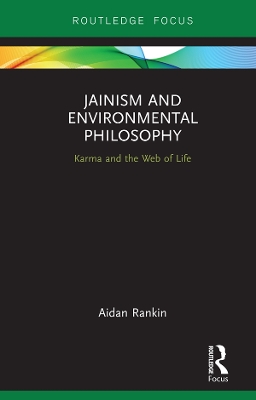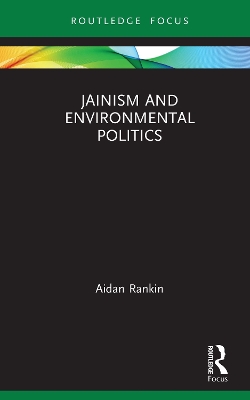Routledge Focus on Environment and Sustainability
2 total works
Environmental policy agendas, activism and academic research into ecological questions are all predominantly derived from the philosophical perspectives of the West. At national and global levels, environmental policy-makers tend to work according to Western-based methodologies. At the same time, emergent or developing economies are profoundly affected by the issues they address, including air pollution, rapid urban expansion, habitat loss and climate change.
If environmental awareness, and the policies that stem from it, are to have a lasting global impact, it is important that non-Western voices are heard in their own right, and not merely as adjuncts of Western-led agendas. Jain thought is a useful case study of a system of values in which environmental protection and the idea of a 'web of life' are central, but which has evolved in India independently of Western environmentalism. This book describes and explains Jain environmental philosophy, placing it in its cultural and historical context while comparing and contrasting with more familiar or 'mainstream' forms of ecological thought. It will also show how this thought translates into practice, with an emphasis on the role of environmental concerns within the business and commercial practices of Jain communities. Finally, the book examines the extent to which Jain ideas about environmental protection and interconnectedness have universal relevance.
This book will be of great interest to students and scholars of environmental ethics, sustainable business and economics, environmental policy, and Jainism.
This book explores the ways in which the ecologically centred Indian philosophy of Jainism could introduce a new and non-western methodology to environmental politics, with the potential to help the green movement find new audiences and a new voice.
Aidan Rankin begins with a description of the ideas and principles that distinguish Jainism from other Indian (and western) philosophies. He goes on to compare and contrast these principles with those of current environmental politics and to demonstrate the specific ways in which Jain ideas can assist in driving the movement forward. These include the reduction of material consumption, the ethical conduct of business within sustainable limits, and the avoidance of exploitative relationships with fellow humans, animals and ecosystems. Overall, the book argues that Jain pluralism could be a powerful tool for engaging non-western societies with environmental politics, allowing for an inclusive approach to a global ecological problem.
This book will be of great interest to students and scholars of environmental politics, environmental philosophy, comparative religions and Jainism.

